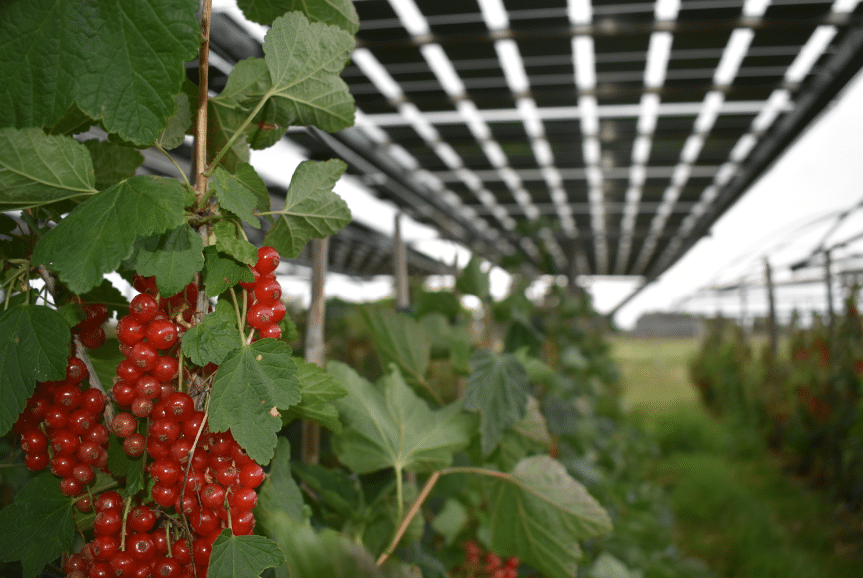German renewables developer Baywa re has fleshed out some of the claims made about agrivoltaics by demonstrating the ability of solar panels to mitigate the effects of climate change on a redcurrant crop in the Netherlands.
Quite apart from the carbon emissions reduction represented by the clean energy generated by the 1.2 MWp array at Rini Kusters’ fruit farm in Wadenoijen, the structure has been observed to reduce extreme high temperatures on the crop and also shield the plants from damp.
“Weather excesses are becoming more and more common, and they are harmful to the plants,” said Kusters. “The development of fungus on the fruit due to a too-wet climate, for example, is a problem that is increasingly frequent.”
The expansion of what was installed as a pilot project last year has borne fruit, said the farmer. “On the hottest day last year it was 10 degrees [Celsius] cooler under the solar panels. On the wettest day, the plants remained dry. It's a solution that I really believe in.”
Baywa, which yesterday said it has plans for 35 MWp of European agrivoltaics through next year, initially tested its solar array by shielding raspberries from the elements at Babberich, also in the Netherlands. The program was then expanded to several pilot schemes with the help of Wageningen University & Research, including Kusters' crop, said Baywa in a press release issued to publicize the technology.
The solar array will replace the poly tunnels which typically protect such crops and Baywa said it is testing its application on other crops in Europe, including apples and pears.
“We had already created one of the largest and most technologically sophisticated ‘fruitvoltaic’ solutions in Europe in 2020, with our 2.67 MWp raspberry PV installation in Babberich,” said Stephan Schindele, product manager for agri-PV at BayWa. “Today, we are very excited to continue this fantastic journey and see our efforts rewarded by entering a new chapter of agri-PV with a new berry crop in Wadenoijen.”
This content is protected by copyright and may not be reused. If you want to cooperate with us and would like to reuse some of our content, please contact: editors@pv-magazine.com.




3 comments
By submitting this form you agree to pv magazine using your data for the purposes of publishing your comment.
Your personal data will only be disclosed or otherwise transmitted to third parties for the purposes of spam filtering or if this is necessary for technical maintenance of the website. Any other transfer to third parties will not take place unless this is justified on the basis of applicable data protection regulations or if pv magazine is legally obliged to do so.
You may revoke this consent at any time with effect for the future, in which case your personal data will be deleted immediately. Otherwise, your data will be deleted if pv magazine has processed your request or the purpose of data storage is fulfilled.
Further information on data privacy can be found in our Data Protection Policy.